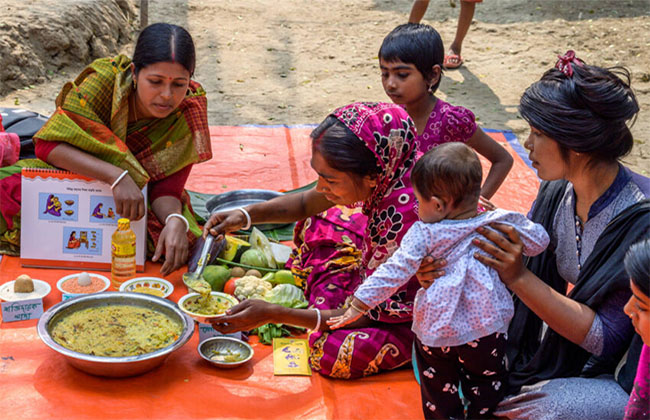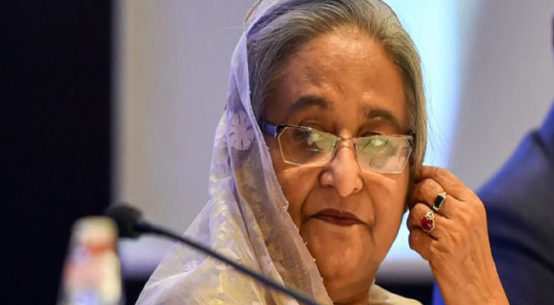
Persistent societal challenges are on the rise: hunger, mental health issues, contagious disease, conflict, chronic inequality, and the climate crisis. The list goes on — but so do the opportunities for innovation. Seldom has the world seen greater promise or greater peril.
Realizing the more optimistic paths forward may not be easy, but it is possible. Among other things, it requires new models of collaboration, which is why several leading organizations recently came together to rethink core assumptions about how to address global hunger, with the audacious goal of ending chronic hunger in our lifetimes. The approach just might serve as a model for other issues, as well.
An urgent issue
As many as 828 million people — about one in 10 worldwide — faced hunger in 2021, a number that has grown 22% since the start of the COVID-19 pandemic. Additionally, an alarming 49 million people in 49 countries are on the verge of famine.
The drivers of hunger include conflict, climate collapse, and chronic structural inequality that systematically excludes vulnerable communities from decision-making and benefits some to the detriment of most. While aid budgets have risen 223% over the past decade, they haven’t kept pace with rising needs, leading to a hunger funding gap of 93%.
Against this backdrop, ending hunger can seem overwhelming — especially by 2030 to achieve the United Nations’ zero hunger goal.
Together Against Hunger
To address this growing challenge, leading organizations have come together to fight against hunger. They include the international NGOs Action Against Hunger, CARE, Catholic Relief Services, and World Vision. Devex and Global Citizen are engaging a broader audience — and Salesforce.org is playing a key role in supporting innovation.
Leaders from these groups recently met for Together Against Hunger, a two-day conference that attracted more than 500 people from dozens of countries, both virtually and in person. Speakers included Sara Menker, Jerry Greenfield, Yusuf Omar, Kate Musimwa, Mwandwe Chileshe, Rev. Heber Brown, and Isobel Coleman.
Three key takeaways
The event was an opportunity to challenge the status quo and explore ways to take to scale what has worked well. Here are three of the key takeaways:
1. Think big and work together
Start by challenging your assumptions on the issue. As Mwandwe Chileshe, food security, nutrition and agriculture global policy lead at Global Citizen, said, “We’ve created a false narrative that hunger must always exist.” Hunger is not inevitable. To create a future free from hunger, we need bold, transformative action backed by robust funding that is multi-year, flexible, and reflects predictive data about the state of malnutrition months and years from now.
We can reconsider the role that we play, and more deeply engage a wide range of stakeholders. “As the son of a poor farmer, I know how it feels not knowing when my next meal will be. It’s outrageous to see hunger increasing. We need commitment and perseverance to achieve zero hunger. Let’s drop logos and egos and work together,” said Charles Owubah, CEO of Action Against Hunger.
Isobel Coleman, deputy administrator of the U.S. Agency for International Development, reinforced the U.S. government’s commitment to ending severe malnutrition, as evidenced by USAID’s announcement of a $200 million investment to scale up access to treatment, the largest-ever commitment of its kind.
The private sector also is critical. “Businesses understand you need to take risks when making new products. But when it comes to taking risks about social issues, they become very risk-averse,” said Jerry Greenfield, co-founder of Ben and Jerry’s. “You have to be willing to take risks, make mistakes, and learn from it.”
2. Put the most vulnerable communities at the center of our efforts
Hunger is fundamentally about power, with the hungriest people typically the least powerful. Ending hunger requires changing political, economic, and social power structures. At the event, humanitarians, policymakers, and donors emphasized the need to tackle the root causes of inequity by working in solidarity with affected communities.
A strength-based approach is key. As Reverend Heber Brown III, founder and executive director of the Black Church Food Security Network, said, “We don’t start with what’s wrong. We start with what’s strong.” Participants emphasized the importance of involving the communities most affected by hunger in the solution.
3. Focus on the highest-impact, evidence-based interventions available
Together Against Hunger participants agreed that we must focus on scaling solutions that have proven effective, such as approaches in the landmark Ceres 2030 study on agricultural interventions.
“We need to engage, learn, and innovate based on the success of the solutions,” said Imelda Awino, deputy director of the knowledge and innovation hub at Action Against Hunger.
Participants also discussed the need for real-time and robust data on hunger and malnutrition to track and measure our effectiveness. Sara Menker, founder and CEO of Gro Intelligence, emphasized the need for increased collaboration and a more coordinated landscape. For example, her company is using artificial intelligence and machine learning to create models that predict the future of global food security, national security, and global stability.
Advancing the movement
Ultimately, the Together Against Hunger event tackled big questions that will require large investments and buy-in from new partners. “Hunger does not receive the investment it deserves because it does not affect people equally,” said Ashwini Kakkar, global chairman of Action Against Hunger.
Now more than ever, we need to grow a broader movement, challenge traditional ways of thinking, and inspire others to join the fight. Success rests on everyone’s shoulders.
Emily Bell Tyree is associate director of communications at Action Against Hunger, a nonprofit global humanitarian organization that is innovating solutions, advocating for change, and reaching 24 million people every year with proven hunger prevention and treatment programs.


